GEN NXT: Matt DiBara
Words: Matt Dibara
Sponsored By:
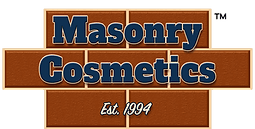
Editor’s Note: For our first 2023 feature of GEN NXT, MASONRY Magazine had the chance to talk with Matt DiBara, Owner of DiBara Masonry, about his experience in masonry, marketing, and more. With a generational background in the field, Matt continues to use his strengths to benefit the masonry industry as a whole. Thank you, Matt, for taking the time to talk with us.
Photos: Matt DiBara, Sheeraz2
MASONRY Magazine: Tell us a bit about yourself and how you got into the masonry industry.
Matt DiBara: So, here’s the overview: I started working when I was nine. First day on the job, I mixed my first bag of mortar. My dad wanted me to start earlier but my mom said I was too young. My family had the old school Italian work ethic – it doesn’t matter how young he is, he’s going to get out there and do it. The first day on the job, my dad handed me a mixer and I told him the bag was too heavy. He handed me a knife and cut the bag in half. Afterwards, my dad handed me trash bags and made me clean up the job site; not just ours, but all of the trades. From there, I kind of grew. I really admired what my dad did; I admired what he did around the house. Around that time, my dad was doing a lot of work around the house that he designed and built, so that was always exciting.
I worked with him every summer growing up. When I was 12-13 I actually started doing stuff and in Spanish they called me a “little bull” because of how strong I was; we did predominantly stone walls at the time. I went to a vocational high school and I did bricklaying and blocklaying. By 16, I was running full-on crews after learning the right way to do things. By 18-19, we started doing more government and commercial jobs. That was when we really had multiple jobs and multiple suppliers. From there, I went to college for construction management, environmental design. I remember I was in college and I walked on a union stone job and they were laying out the corners wrong so I told him “you don’t have the right layout,” and he handed me a trowel. I walked over there and started laying stone. He replied, “come here tomorrow and we will give you a job.” Afterwards, I ended up running that project because they had some issues come up. I was nervous at first because I had only worked in my family’s business before, but never ran a group that I didn’t know. That was college.

In high school, I took second in the country in what’s called SkillsUSA. My dad told me that if I could place, he would pay me more. I was like “well alright; I’m going to win this thing.” I was practicing bricklaying with my teachers, so on Saturdays they would come in and train me. After finishing college, that’s when I started to understand more about business and was really eager to grow the company. My dad was a bit more old school; eventually, we split. Around 20 I picked up a pickup truck, got my license, and started my own company. I had developed a way to fix foundation cracks. My dad started seeing the power of digital marketing, and by that time, he started to wind down. I decided to move to California and I met someone. Then, I met a producer in the film world and their project was a mess. They wanted me to fix it so I had to get my license in California. Word of mouth spread and in the film world I was kind of known as the “no BS guy from the East Coast.”
Fast forward to today and I usually run eight job sites, working on some of the people that I used to see on TV, so it’s fun. And, you know, a lot of love, a lot of problem solving projects and we’ve kind of built up a brand. It’s residential, commercial, or government; we’re the ones that just get it done, but not the cheapest. So I get called when the cheap guy or gal doesn’t do it right, and then they’re like, “hey, we need you here next week, we’re gonna pay your price.” And that’s kind of the long and the short of it.
M.M.: So you got into the masonry industry through your dad. Are you a second-generation or does your masonry history go further back?
M.D.: So my great grandparents came here from Italy. They each bought land and built their home from the ground up. My great grandfather, Matteo, who I’m actually a junior from, would come home on a weekend and he would take stones or dig holes and clean off all the stones in the building. He wouldn’t go and buy rocks. So his house is still there and full of pizza ovens and stuff. But they both dug holes, foundation walls, and then when they made a little more money, they built their homes from that. And that’s how the family business started. They worked on their own homes and could do everything; we don’t know where they learned it. So we think it’s even more generations, but it’s a little loose. So my grandfather Pasquali is like Matteo, a very artistic, slow perfectionist. My grandmother’s father was Michael Caruso, and he was more like fast and “let’s get it done.”
M.M.: Including your father, did you have a mentor along the way? How was that?
M.D.: Yeah, my dad was a big mentor. My dad was tough, you know. My dad mentored me in a different way, like would just leave me. We had a job and I think I was probably 11 or 12. I was doing a little bit of bricklaying, not a lot, and the church near us had a brick mailbox that got hit. And my dad showed up like “I’m gonna show you how to lay brick and I’ll be back in three hours.” No big deal. That was my mentorship as a kid. You know, by 16, I was running jobs. He just would leave me with an architect; he’d get frustrated and just leave. The architects wanted to go and mark out every area, so my dad got through about 20 feet before he literally just stopped and left. I was like, “yeah, we’ll go through it.” So that was his mentorship. And then I had teacher in school that saw talent in me and that helped. They would come in on Saturdays and teach me all the things they knew and would give me side jobs at night. And then in college, I had professors that were flexible with me, allowing me to work.
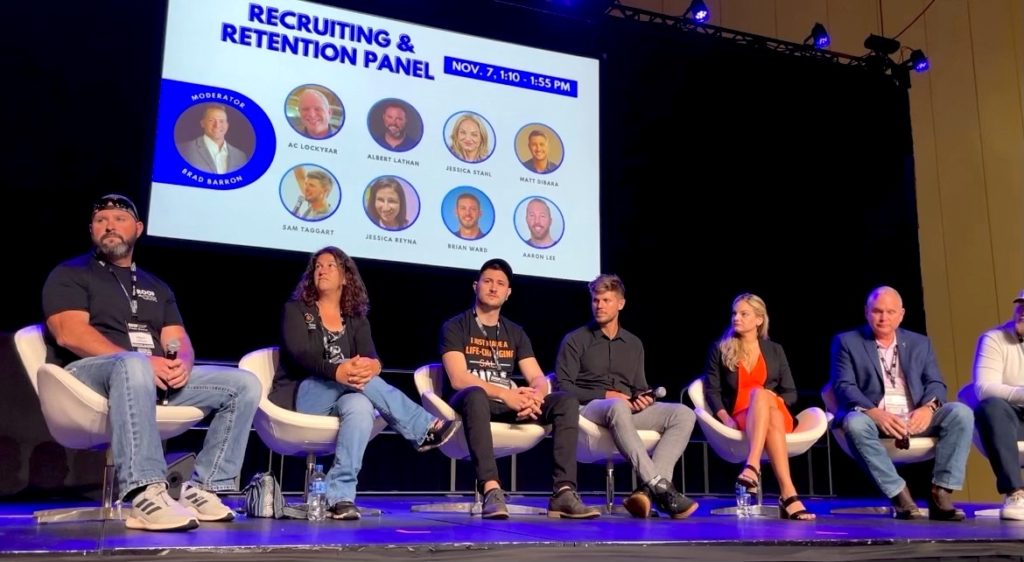
Then, after, I had a really impactful mentor by the name of Jay Abraham. He’s a really well known marketing guy that I met. He took me under his wing, and really taught me how to amplify a lot of the things I was doing in business. And that was really transformative. I used to meet with him like once every month or two, and I would do work at his house to kind of offset the money. We would talk for an hour and then he’d hand me a notebook. And he’d be like, “go sit over there and write down everything we said,” and it’s kind of like the Karate Kid. He was at the tail end of his career, and just really kind of took a liking to me.
M.M.: What motivated, and continues to motivate, you?
M.D.: There are two big motivations in my life. The first one is that blue collar workers didn’t get enough respect and that always bothered me. So I was like, I want to be so good at this, that one day, I can go back and show people. I got made fun of and told I was stupid for going to a vocational school. My whole life, it was like we go into restaurants dirty and they’d kick us out saying, “you can’t eat here.” Like my whole life had a majority of the population that didn’t understand looking dirty, and like, there were a lot of stigmas. I was very motivated because I was embarrassed. There was a time as a young young kid where I’d be embarrassed because my dad would show up all dirty and I’m like, “man, all these other kids’ dads aren’t dirty.” I didn’t get it. I started to understand it when I was a little bit older and started working. My dad worked hard just to provide for us. I have a lot of respect for that. Then I hit a point where I remember watching Mike Holmes on stage at SkillsUSA. I thought that was cool. But I remember saying like, if I can become a millionaire at a young age doing this, I can prove to people that you can too. Then it shifted once I started becoming what I guess you’d say, like ‘successful’. It was like I’ll never be able to rewind time and see my dad.
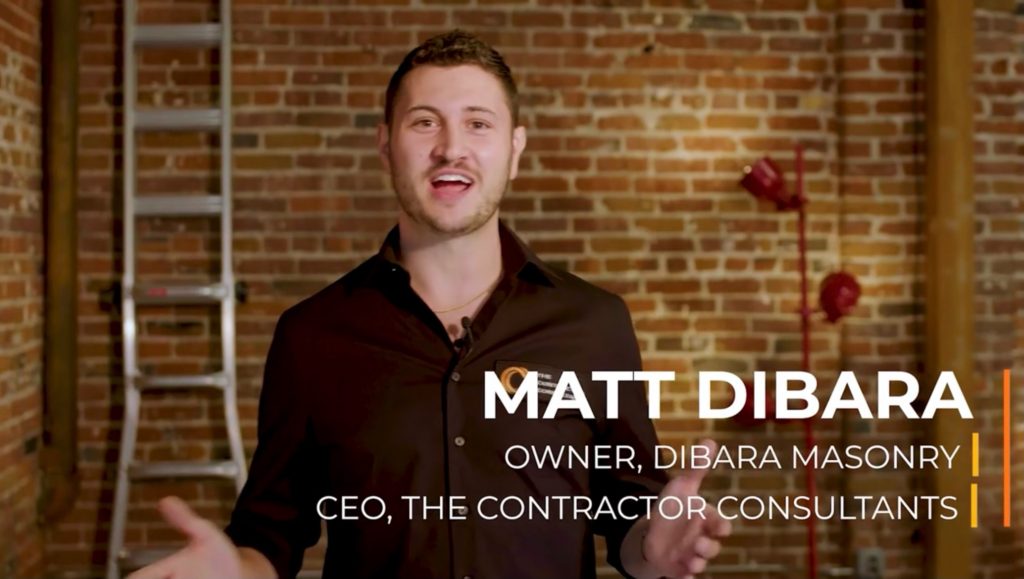
What fascinated me was, when I moved to LA and understood marketing, I was able to take jobs away from people who had been there for 30 years, so I started to understand that there’s so many things I actually didn’t understand. So it became a motivation for me to learn business. I want to understand business. What’s this business side of it? That was very motivating; that’s when I was reading the books. And then after I got that, it was like my life has led me to this path and I never knew why. I could connect all the dots now and see it clearly, but back then it was just like, “I’m doing this.” I genuinely got to a point where I was like, I know a lot of things because Jay was, like, one of the highest paid marketing consultants in the world. That taught me a different way of thinking. And so, for four years of running my business, I was running it completely differently. And then it became the motivation to help people. So first, it was like I wanted to prove to people that you can make it and you’re not just some dirty tradesperson. That’s like placing second in the country when I got all kinds of scholarships. I was proving to people that this isn’t something to be looked down upon. Then it was wanting to learn the business side of this thing. Can you run a business where you’re not working in it all the time and you’re out of the truck? That was the next motivation. I still see so many people that are twice my age, working so hard. They remind me of my dad, and then it becomes emotional like, “what can I do to give back? How do I take what I’ve learned, which I find helpful, for contractors and packaging?”
M.M.: So what went into the development and execution of The Contractor Hiring Course?
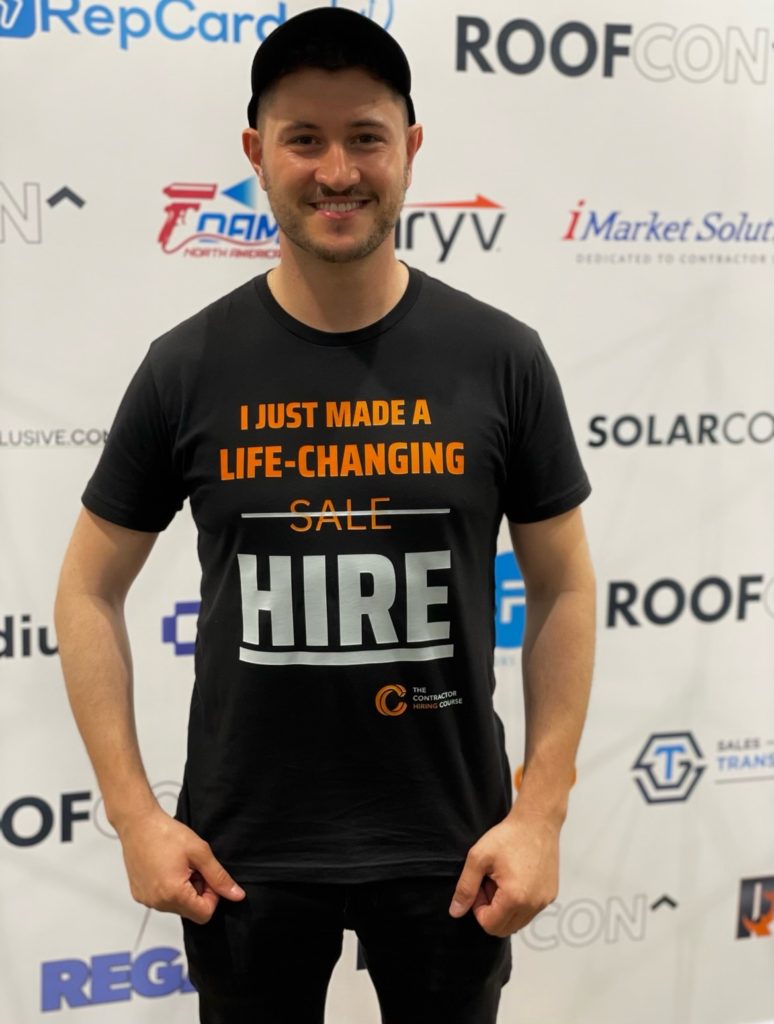
M.D.: It kind of happened by mistake; I didn’t really plan for any of this to happen. I was having a baby and I started asking myself, “what fills me up as a human being?” I’ve worked on these celebrity homes, I’ve done a lot of these things, I’ve checked off so many boxes, right? Financial goals, business goals, and I’m at a place now of thinking maybe do I want to grow a huge company? What’s my next 10-15 years look like? I mentioned how three years ago, there was this glass ceiling in hiring, and then I became obsessed with fixing that. That was really the catalyst for me figuring it out. There’s got to be a way and I know, there’s a way. I genuinely believed whoever holds the answer to this is going to run the industry, because we’re the subcontractors. We control the labor force. I was seeing so many signs. For example, I would give a bid, right? They’d be like “sorry, you’re the fifth highest person.” Okay, great. And then six months later, they’d be like, “hey, can you start in a week?” and there’s a shift happening in the marketplace that I had never seen before. So that was the catalyst for me learning it on my own. From there, it became, well, how do I teach this? It was just coffee shops. It was like contractors I knew and little tips from them; I enjoyed it. I had so much fun and I would meet at night – seven, eight o’clock – like, “let’s grab a coffee.” Well, you know, show me what you’re doing and I’d look over the headlines. I’m like “try this headline and try that.” And then they would work. This was way more exciting than my sales team being like, “we just closed the million dollar project,” like this is way more. With the baby, it was like I couldn’t be going to coffee shops and I worked a lot as it is.
We set out to make this booklet for hiring. Then, we conducted research. So we were like, “let’s make sure that we’re not missing anything and let’s make sure we’re fully addressing this problem.” I looked in the corporate world; I looked in the construction world; I was like, there’s nothing even remotely close to what I had done in this industry. And it was so eye opening, because I’m just this little guy. That was me then going out into the world and being like, okay, has anyone done this before? It started to make sense as to why because I had to have a marketing background, I had to have a skill background, I had to have a writing background, and there were so many things I had to have. And then I had to be the part-owner that wanted to do all this himself to learn it. I’m sure other companies have bits and pieces, but if you’re an HR person, you would never get that same perspective and recognize patterns and trends.
Then we realized that this doesn’t work. It’s so broken because we call it the contractor hiring course and all I wanted to do was help people find candidates. Then I realized that if they find too many, and they don’t have my interview process where they can quickly sift and screen, they’re done. Then, I added that element; then it was that now they can interview, but I’ve lost candidates by not knowing the proper onboarding. We basically made the decision where it’s going to add a year, at least to the development, but we’re going to put everything we know into it. It’s all connected. It was like baking a cake – you can’t miss one thing. This is why so many companies struggle – you need all of these elements.
It was all accidental, though, is what I’m trying to say. It was never wanting to solve hiring. I didn’t even know I knew all this stuff. It was like, Luca would ask me like, “well, what would you do?” I’m like, well, here’s how I do it. And he’s like, “Oh, my gosh, this is brilliant. This makes sense.”
M.M.: Were there any challenges along the way that changed your initial path?
M.D.: Yeah, I think making sure that everything can be articulated. I think the hardest part was that I had done this stuff so much that I look back and I’ve done 1000s of interviews. I think one of the hardest difficulties was actually that I would unconsciously miss things a lot. Like, there’s a gap in here where it doesn’t quite make sense. And so getting to be so thorough. And, I think packaging it all up in a way that anybody can take it, like really making sure that if you’re an HR person or a business owner or a business manager; I didn’t want it to just come from an owner’s perspective. And so I think it was a little more difficult to fi t with the HR person or ops manager, office manager, etc. Understanding the content to the audience was, I think, pretty difficult.
M.M.: What are your goals for The Contractor Hiring Course?
M.D.: My genuine goal is just to get contractors to spend more time with their families; get them home early for dinner and get them less stressed. Every time that I’ve ever seen my dad answer his phone stressed, it was because of either the fact that we didn’t have the right person, or we had somebody do something wrong – it was always employee related. So I think the goal is to solve this issue as far and as wide as we can take it, but the end goal is to create better companies, better culture, better pay, and look back at the team they built and go, “okay, they’ve got the right team.”
M.M.: Where do you see yourself in the future?
M.D.: My goal is to have a really positive impact in the industry. I think I’ve been so fortunate to have been led by so many good people that I just want to really like my I conduct myself now in a way where I can be an example for the industry; that is my goal. You can be a millionaire and at 30. If you want, you can do this. If your goal is this, if your goal is that, it’s achievable. And I know that because I’ve done it. I want more people in this industry and more people in skilled trades. I want more people to understand and be able to spend a little more time thinking about their career paths; not with blinders on that are put in through this kind of society and a lot of the stigmas like I almost did. Another is to bring as much innovation to the industry as possible. I think that next level is; we’re at the shift of it right now. I want to just support that in any way I can.
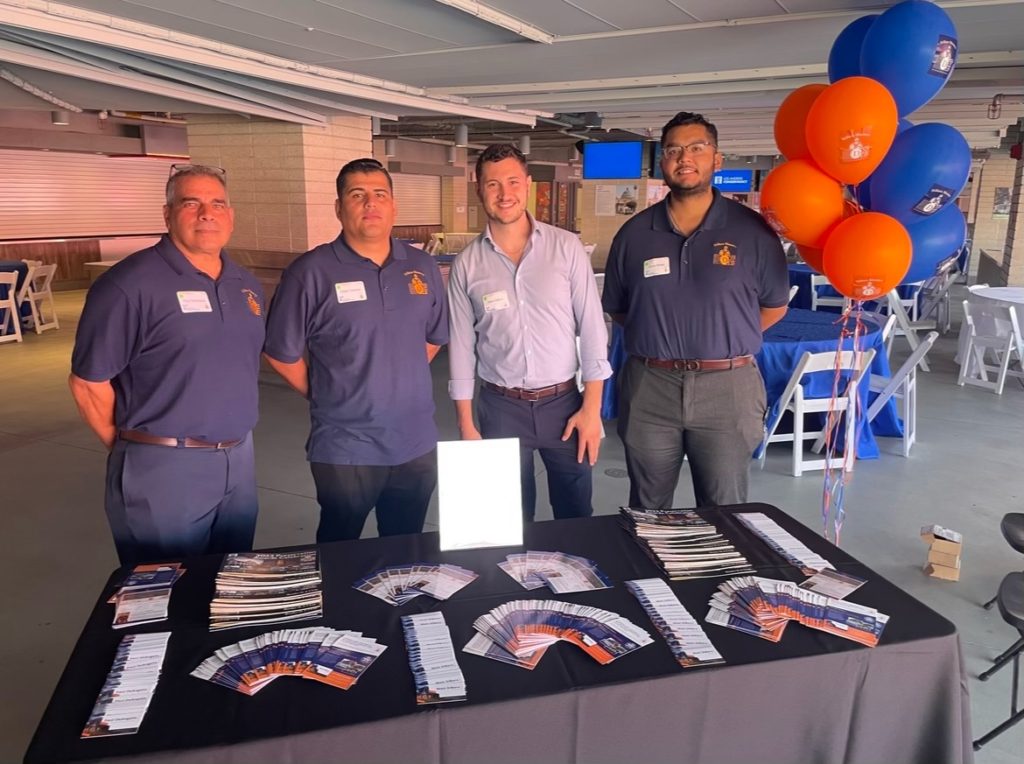
M.M.: What advice would you give someone looking to join the industry?
M.D.: I would say to get really clear on what you want. Don’t be scared to take that as far as you can. I’ve just seen so many different examples of artists and stonemasons who are just like the top tier and they have small companies. It’s him and two other people, but he flies around the world. I think there’s so much creativity and flexibility with what you can build in this industry from wanting to build a mega big commercial company with 300 employees and owning a jet, it’s possible. You want a small company, you got your 10 people, and you’re really proud of what you built? That’s possible. You want to be in the fi eld and build a brand where you’re known for people who want your 10 fingers touching their product? That’s possible. The possibilities are endless if you look around.
M.M.: Do you have anything else you would like to add?
M.D.: The biggest thing that I would say is it’s two things that have transformed my life: number one – thinking big, and number two has been really paying attention to what’s out there, like getting around people that are doing things similar to what you want to do.